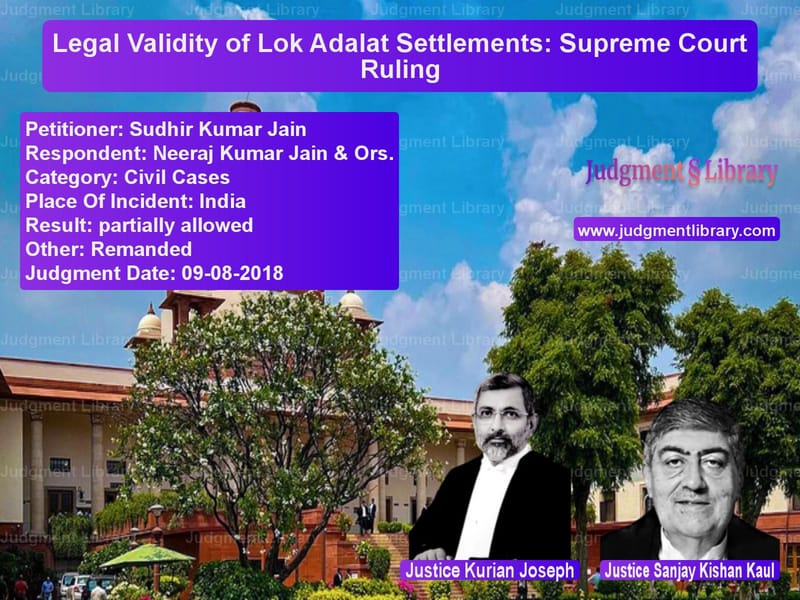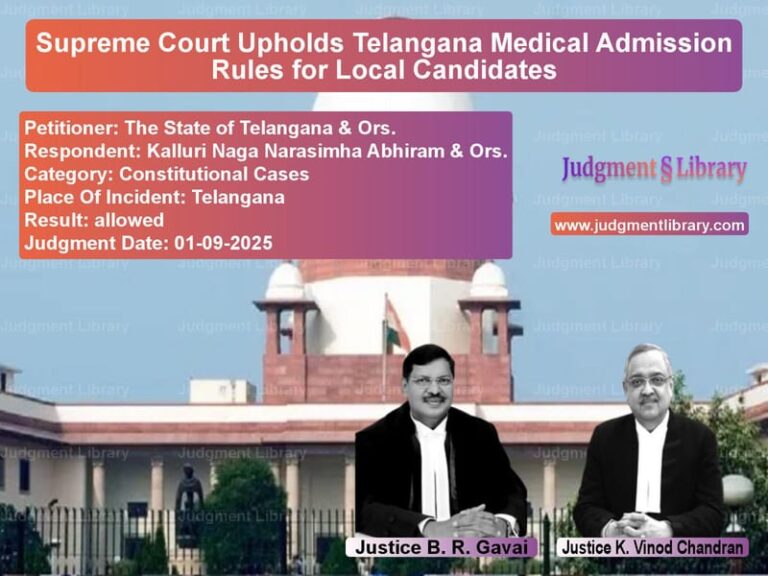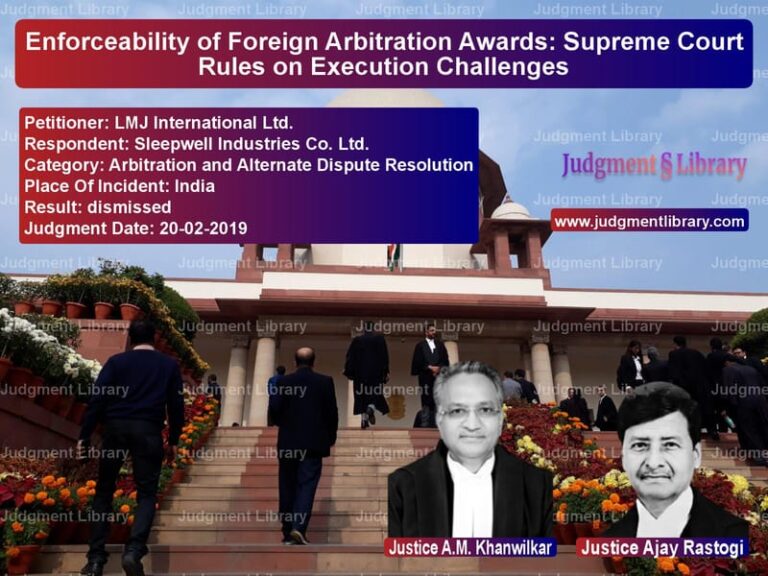Legal Validity of Lok Adalat Settlements: Supreme Court Ruling
The Supreme Court of India, in its judgment dated August 9, 2018, addressed the issue of the legal validity of a Lok Adalat settlement where an appellant, who was not a party to the original suit, challenged the award. This case, Sudhir Kumar Jain vs. Neeraj Kumar Jain & Ors., highlights the complexities involved in compromise agreements before Lok Adalats and their enforceability.
The case originated from a compromise settlement in Original Suit No. 68 of 2010, which was resolved through the Lok Adalat on September 2, 2013. The appellant, Sudhir Kumar Jain, approached the High Court, arguing that he was neither a party to the suit nor to the settlement. However, the High Court dismissed his plea on the grounds that he was not an ‘aggrieved party.’
Petitioner’s Arguments
The appellant, through his learned senior counsel, contended that since he was not involved in the original suit, the compromise settlement in the Lok Adalat adversely impacted his rights without his consent. His main argument was that the award should not be binding on him as he was not a consenting party to the resolution.
Respondent’s Arguments
The respondents argued that the appellant had no locus standi in the matter since he was neither a direct party to the suit nor directly affected by the compromise agreement. They contended that the settlement was legally valid and that the High Court had rightly refused to interfere with the Lok Adalat award.
Supreme Court’s Ruling
The Supreme Court, after considering the facts, observed that the core issue regarding the settlement was pending before the High Court in Misc. Petition (C) No. 497 of 2018, where both parties were involved. Given the significance of the dispute and to ensure procedural fairness, the Supreme Court set aside the High Court’s judgment dated March 11, 2015, and remitted the matter back to the High Court.
The Court granted the parties the liberty to seek an expeditious disposal of the pending petition before the High Court. Additionally, a similar appeal concerning the same matter was disposed of in terms of this judgment.
Conclusion
The ruling in Sudhir Kumar Jain vs. Neeraj Kumar Jain & Ors. underscores the importance of due process in compromise agreements, particularly in cases resolved through Lok Adalats. The Supreme Court’s decision to remit the case back to the High Court ensures that the appellant’s concerns are addressed, reaffirming that settlements must not unfairly impact non-consenting parties.
The judgment reiterates that even though Lok Adalat awards are final and binding, they must not contravene principles of natural justice by affecting individuals who were not part of the settlement process.
Petitioner Name: Sudhir Kumar Jain.Respondent Name: Neeraj Kumar Jain & Ors..Judgment By: Justice Kurian Joseph, Justice Sanjay Kishan Kaul.Place Of Incident: India.Judgment Date: 09-08-2018.
Don’t miss out on the full details! Download the complete judgment in PDF format below and gain valuable insights instantly!
Download Judgment: Sudhir Kumar Jain vs Neeraj Kumar Jain & Supreme Court of India Judgment Dated 09-08-2018.pdf
Direct Downlaod Judgment: Direct downlaod this Judgment
See all petitions in Contract Disputes
See all petitions in Specific Performance
See all petitions in Damages and Compensation
See all petitions in Judgment by Kurian Joseph
See all petitions in Judgment by Sanjay Kishan Kaul
See all petitions in partially allowed
See all petitions in Remanded
See all petitions in supreme court of India judgments August 2018
See all petitions in 2018 judgments
See all posts in Civil Cases Category
See all allowed petitions in Civil Cases Category
See all Dismissed petitions in Civil Cases Category
See all partially allowed petitions in Civil Cases Category







